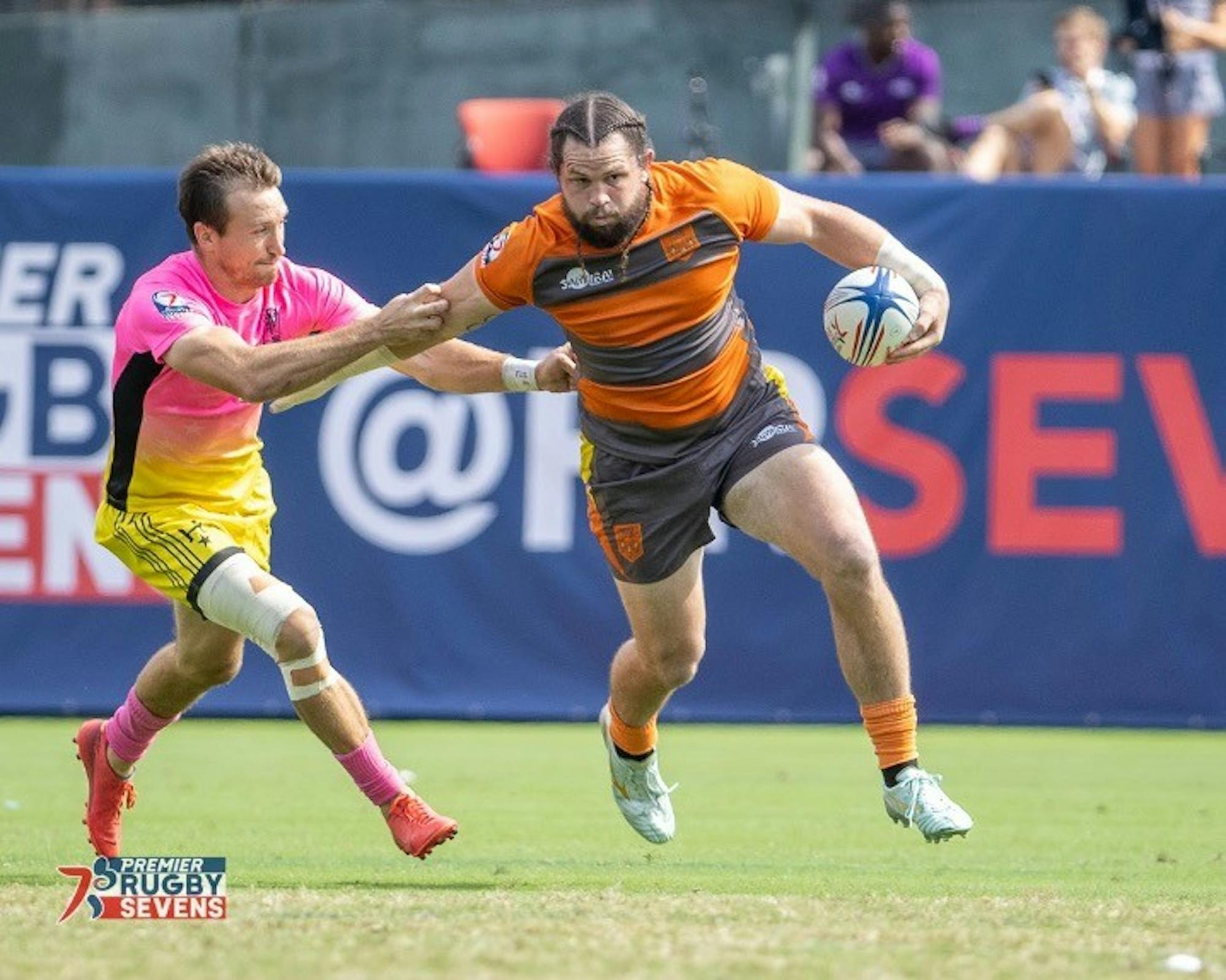Dartmouth Rugby Football Club’s legacy runs deep. The team is sitting on a 12-year Ivy League championship winning streak in 15s — from 2008 to 2019 — and has won seven of the last eight Ivy League 7s championships.
Owen Scannell ’13 Tu’19 is now trying to expand that legacy to the national stage. After graduating from Tuck School of Business, Scannell has launched the new Premier Rugby Sevens (PR7) league in the United States.
“I was a rugby player in college, and I really saw an opportunity for rugby sevens in the U.S. as an entertainment product,” Scannell said. “Dartmouth had done really well back in 2012 and 2013 and I saw how excited that got people, so I figured there was an exciting chance to do something on the professional stage.”
The league, which currently has six men’s teams and four women’s teams, recently piloted in Memphis, Tennessee, and will begin its full, regular season schedule in 2022. The league functions in a tour format, with one-day events held in cities, which allows for tailgating and other social events. The teams play multiple fast-paced games in a tournament style, and each game features seven players on each side and lasts 14 minutes with two seven-minute halves.
During the COVID-19 pandemic, Scannell said that the league has created jobs for athletes, media and marketing teams. Notably, Scannell has also committed to providing equal pay for men and women, which is atypical among professional sports leagues. Current DRFC player Sam Frohlich ’25 said he sees Scannell’s dedication to this goal and to entrepreneurship as inspiring.
“He took something that he’s passionate about and brought it to fruition, which is impressive to see,” Frohlich said. “I think the fact that it will be an equal pay league is great because it sends the message that rugby is a sport for everyone, and I think they should be providing equal compensation for every player regardless of gender, working to make this league a success.”
Scannell recognizes that equal pay is not necessarily enough to eliminate gender inequality in the league, and said that he has taken steps beyond that to make PR7 as equitable as possible.
“Equal pay is the line, but it extends beyond that, and really it’s equal treatment,” Scanell said. “We felt like we had a really unique opportunity to make it an inclusive league from that perspective so that means equal access to facilities, hotels, flights, travel, high performance training staff and quality coaching.”
Alex Magleby — Scannell’s coach during his time at Dartmouth and someone he describes as “one of his biggest mentors” — expressed that he was proud of Scanell’s commitment to the equal treatment of genders in sports.
Magleby, a former United States national team player and captain, is the co-founder and CEO of the New England Free Jacks of Major League Rugby. When he first started the team, Scannell was one of his first hires. Scannell was initially brought on to access the financial model of the budding business and grew to be the director of operations or, as Magleby describes it, his “first hand-man.”
“We were in some pretty stressful situations and what I loved and appreciated about Owen was how he was able to find humor in difficult situations, which will continue to be a great attribute of his as he continues to grow,” Magleby said.
Scannell credits his leadership skill development to being a student in Hanover for six years. He praised Tuck Dean Matthew Slaughter and his Tuck professors for his education.
“Studying the leadership and business side of the equation in an academic context was an invaluable experience,” Scannell said.
Scannell points out that the fast-paced nature of rugby 7s is reminiscent of NFL games but with even more action. Generating an American market requires strategic marketing — Scannell said he must convince Americans, who are accustomed to the NFL or NBA, that their time watching PR7 is time well spent.
“The way that [rugby] connects with the participants is something that people have been trying to bring to the U.S. for quite some time now,” Scannell said. “It's an ever evolving landscape because it’s a global game with a lot of pressure and a lot of different angles, so trying to fit the company into that landscape is something that’s constantly changing and shifting.”
Scannell hopes to grow the league and business in the coming years, looking forward to commencing the first proper tournament tour in 2022. According to Scannell, the league could function as a stepping stone from collegiate level rugby to professional national team play, which is missing in the U.S.
“[Premier Rugby Sevens] provides an intermediary between university rugby to the top international game and also opportunities for athletes to specialize [in 7s rugby] and use that to leverage into a better Olympic team in the future,” Magleby said. “The great thing is now this also provides that pathway for women’s professional sevens rugby athletes, which then can help us as we try to establish women’s 15s professional rugby as that pool of athletes starts to get produced.”




